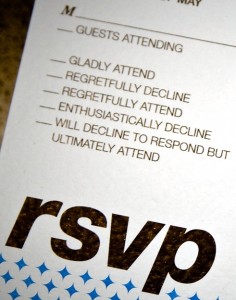
I should write a whole post just analyzing the recent short diatribe of Todd Akin, US representative for Missouri’s 2nd District, and that diatribe’s fallout. But there’s an aspect of it which is independent from specifically what he said, who objected, and why that I want to call attention to: the public apology ritual.
These things come up with bothersome regularity (two more near me in recent months, but in Kansas) so let this serve as anchor for a series. The public apology ritual goes like this. A person is observed doing something some others find objectionable. The act is recorded or described. The recording or description is published. The ritual then consists of the following.
- Optionally, the person is asked for an apology, either by some number of those objecting or by some number of interviewers covering the objections.
- The person may or may not apologize, but if apologizing nearly always does so in terms of regret for having offended.
I want this ritual stopped.
Let me say that the expression and acceptance of sincere apologies are as essential to healthy relationships and open societies as are objectionable acts. People will bother and hurt each other without intent or awareness, and recovering from that depends on objection and apology. People will bother and hurt each other with intent and at some point develop regret for the hurt itself, and recovering from that depends on apology too.
Preserving the effectiveness of apology (and objection for that matter) is in fact one of the two reasons I want this ritual stopped. An effective objection doesn’t include a request for an apology. It states an objection. Requesting an apology robs the one requested of full room in which to make the decision to apologize, thus cramping the range of sincerity any subsequent apology is capable of expressing — no matter how sincerely regretful the one making the apology may be.
(One might raise the question here regarding the instructive behavior of adults toward children, when one of the former directs one of the latter to apologize. I’m not at all suggesting that should stop, but pointing to it serves to highlight the effectiveness problem of the public apology ritual. An adult may well request that a child apologize to someone as a way of teaching the child cultural expectations and how to meet them. But that’s not generally appropriate behavior between adults.)
The second reason I want the ritual stopped is that in the vast majority of cases, it’s entered into as a result of objectionable speech: sometimes the expression of personal opinion, whether posed as fact or not, and sometimes terms of expression themselves. And while the objections and requests for apology may aim at the holding of such opinion or at the sanction of such terms, the practical effect is to request apology for the expression — and many of the apologies follow suit, not expressing regret for holding a given opinion or for being in the habit of thinking in such terms, but for having expressed them under such circumstance that they became public.
This does two things, both of which I consider negative. It tends to encourage politeness-from-fear over politeness-from-respect — also the counter-reaction of being rude to prove one’s courage. But equally bad, it gives public figures further encouragement to hide their thoughts, making it that much more difficult for people to judge a public figure’s intentions. This is of critical importance with regard to those in positions of power. If you’re in the habit of thinking of certain groups using slurs or stereotypes, I’d much rather know that — particularly if the slurs extend to dehumanization. If you think victims are to blame for their suffering, I’d much rather know that — particularly if you think the occasion of an outbreak of suffering is a good time to assess that blame. If you can’t see the difference between disagreeing with your conclusion and disagreeing with your premise, I’d much rather know that.
Unless your intention is to do me harm, it’s to both our benefits that I have as much information as possible with which to judge how much power to trust you with, and how much information you may need from me to use that power wisely. Of course, if your intention is to do me harm, I’d much rather know that, too.